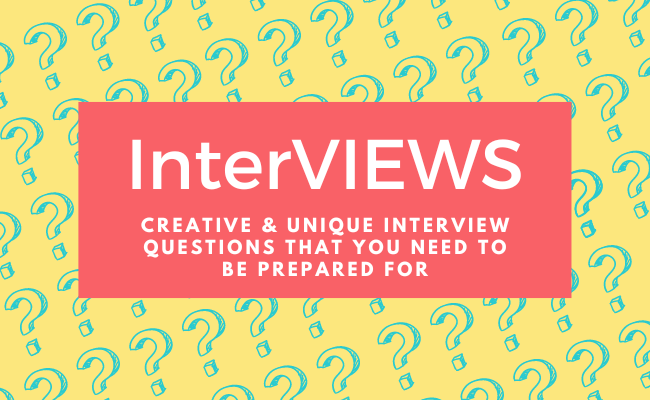"What are your strengths? What are your weaknesses?..."
There are lots of standard interview questions that people use, but we thought it would helpful for job seekers to be prepared for interview questions that are more creative, unique, or insightful.
We asked talent acquisition professionals and others across the tech industry to share their favorite, go-to interview questions they use during interviews. Here is what they shared:
 Kelly Finn
Kelly Finn
Director, Talent Acquisition at HealthEdge
"What frustrates you at work?"
This is my favorite question because it tells me a lot about how someone may or may not fit into our culture. For example, if someone tells me they are frustrated by bureaucracy, red tape, and a lack of innovation, I know they just might be a great fit for my company. If some is frustrated by a lack of process and having to “work in the gray”, that’s a non-starter for me.
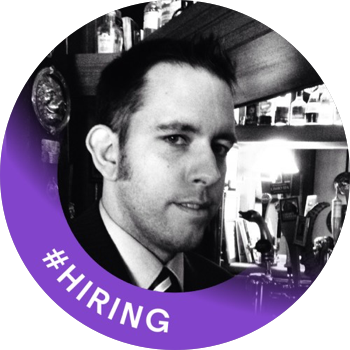 David Scott
David Scott
Talent Acquisition Manager at Post Acute Analytics
"When it comes to your current search, what factors are most important to you in your decision-making process?"
This open-ended question helps to identify candidate motivators and provides an opportunity to set expectations, align on candidate journey, and explore impact of the role on the business.
 Erin Russell
Erin Russell
Human Resources Director at BondLink
"What do you need from your manager in order to be successful in this role?"
I love this question because it tells you about what type of management style works best for them (that fit is important!) and it also tells about the candidate's level of skill/experience in their position. Do they need micromanaging or do they need room to soar?
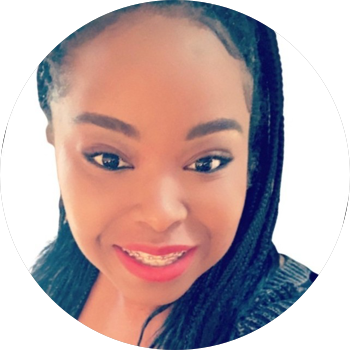 DarShayla Price
DarShayla Price
Sr. Manager, Talent Acquisition at WorkStep
"Why data / software engineering / sales / marketing? What made you jump in a career in this field?"
I really like to understand why a candidate is in the field that they are in. It is easy to ask why they are in the job market or what made them apply for the role that we have open, but what makes you want to continue a career in sales, marketing, or technology? What made you jump into the career path that you are in. It is in those questions that you find someone's true passion, their drive for what they do on a daily basis, and you can often hear the excitement (or lack thereof) to continue in this particular space. As a member of the TA team, I want to ensure that I am presenting candidates to my hiring managers that are going to log in each day excited to make a difference.
 Mary Paris
Mary Paris
Director of Talent Acquisition at PERSUIT
"Tell me about a professional mistake you've made in the past. What happened, and what did you learn from it?"
I like behavior-based questions, as they give the candidate an opportunity to highlight a specific example of the situation, how they navigated through it, and what the result/outcome was. Interviewing can sometimes be quite theoretical so I love questions that highlight real-life examples, and this question tests for self-awareness, a learning mindset, and vulnerability. Ever ask a candidate to describe their weaknesses and hear the typical answers? Try this one out instead!
 Danielle Farina
Danielle Farina
Recruiter at Lakeside Software
“What’s motivating your job search and what are you hoping to do next?”
I love this question because it gets the candidate talking about themselves with a professional focus and opens up so many doors for the initial interview conversation! You learn so much from this question, from what is specifically motivating them, to whether what they’re looking for is a match for the company’s needs, to their communication style, to exactly how to sell a role so that they see just how strong a match there is between your opportunity and their interests. It also sheds light on the flip side – when what a candidate is seeking isn’t a fit for the company’s needs and that, of course, is a really important thing to know for both parties early on in the interview process.
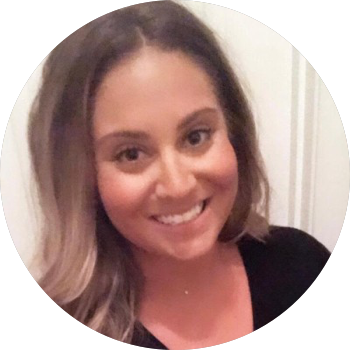 Danielle Lareau
Danielle Lareau
Talent Acquisition Partner at Cybereason
"What professional accomplishment are you most proud of?"
This is a great question to get an indication of project-based accomplishments, or more detailed stories around the candidate's work and what they are passionate about. It's a way to make people feel comfortable bragging a little bit, and helps to facilitate a natural conversation in the interview that steps away from what you can read on a resume - from their answer, you can ask many follow up questions to understand how they work with others, take initiative, etc.
 Jeff Moore
Jeff Moore
VP of Talent Acquisition at Toast
I have two questions I like to use.
"Tell me about a time you took a risk and it failed. Looking back on it, what would you have done differently?"
I love that one because while everyone loves to talk about their successes during interviews, I really like to learn about when things go wrong and they need to pivot. I like to see how people learn from those moments.
"Imagine you've just been hired on a new Talent Acquisition team. It's your first week and the CEO has asked Talent Acquisition to build a presentation recommending a new location to hire in by the end of the week. The rest of the team is at max capacity, so you need to take this project on. What do you do?"
This one's specific for Talent Acquisition interviews. I have a million follow up questions/hints for this one, but this really shows me how people think.
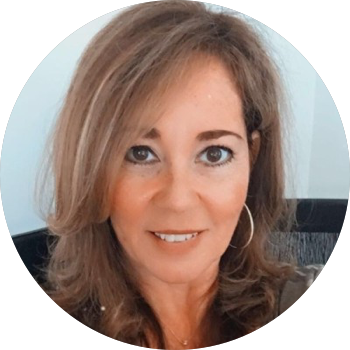 Kathleen Mauriot
Kathleen Mauriot
Talent Acquisition Manager at Aqua Security
"Tell me something about yourself that is not on your resume?"
It usually results in a candidate revealing something fun & interesting about themselves outside of their skills and work experience that normally they would not have shared. It shows their personality, makes them think quick on their feet, and provides insight into who they are outside of work, what interests them, and how they will fit into the team and company culture.
 Kayla Steinhauser
Kayla Steinhauser
People Operations Manager at Centaur Labs
"In what ways were you most underutilized in your last role/job?"
We love this question because it gives the candidate a chance to confidently share what they're good at, what they like doing, and what they want to be doing -- which is ultimately a huge factor in the decision process on both sides.
 Katie Moriarty
Katie Moriarty
Director, Talent Acquisition at SevenRooms
"What is most important to you in terms of company & role as you evaluate your next career move?"
I love asking it because it always tells me more about a candidate's motivations. By learning that, I can better highlight our company and opportunities for that candidate!
 Jaclyn Jussif
Jaclyn Jussif
VP of Talent Acquisition at Paperless Parts
"What do you think your past manager would say your strengths are? What would they say your growth areas are? Do you agree, and if not, why not?"
This question helps to assess a few areas: processing feedback, self-reflection, and managing up. So much of how we show up at work depends on our own ability to accept feedback, self-reflect, and act on that synthesized info. It's important to remember when assessing answers to this question that not all feedback needs to be accepted or acted on - rather you're looking for the person's ability to process the feedback, own their growth areas, and maintain a meaningful relationship with their manager. (Yes, this is from Who!)
 Bill Desmarais
Bill Desmarais
Vice President Of Engineering at Outcomes4Me
"Tell me about a time recently when you had to learn something new in order to get the job done. It could be purely technical, a process, or even just a framework for thinking about something (eg: REST, RACI)."
I love this question as it gets me to where a person is in their career, developmentally, without being a "quiz" or having a "right answer." In addition, there's almost always plenty of room to dig in on what the project architecture was, what new feature was being added, etc.
A good answer can often end up being a 20-minute conversation that establishes their background, how they approach their work, and often to what extent they have a "growth mindset."
 Brian Duke
Brian Duke
Talent Partner at Bamboo Health
"When is the last time that you learned something totally new? What do you want to learn next?"
Learning something new is a choice people can make at any stage in life. In childhood, the lust for knowledge is constant and necessary. As adults, we’re able to choose to learn something new and it takes energy and commitment. We may learn a new skill to advance our career, a new language before traveling internationally, or a new sport so that we can coach our kids in an activity we never participated in. Regardless of what we’ve last learned or look forward to learning next, being a life-long learner is a trait that allows new employees to thrive in their new environment.
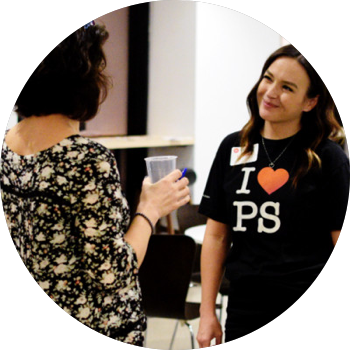 Liz Wren
Liz Wren
Director, Talent Acquisition - Tech & Product at Pluralsight
"What are you looking for in your next job that your current (or most recent) role doesn’t (or didn’t) offer?"
This is what I call role differential. With a single, outcome-focused question, I am hoping to glean:
Why a candidate is looking for a new role.
What is most important in their next role.
What detracted them from their current role.
And, bonus points if the candidate is able to weave in how Pluralsight factors in!
And, if more information is needed, a good ol’ follow-up question such as: How does this role meet those needs? Or how do you see Pluralsight providing that challenge in this new role?"
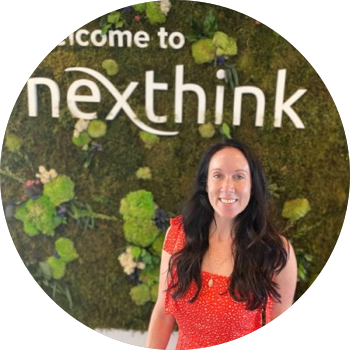 Liz Raymond
Liz Raymond
Head of Global Talent Acquisition at Nexthink
"What is the most important/critical feedback you have received from a manager or colleague? What did you do with this feedback?"
I like this question because it helps me understand a bit more about someone's level of self-awareness, perspective, and their ability to handle feedback. It also can bring out stories to learn how adaptable, flexible, and willing to do the work to grow and develop.
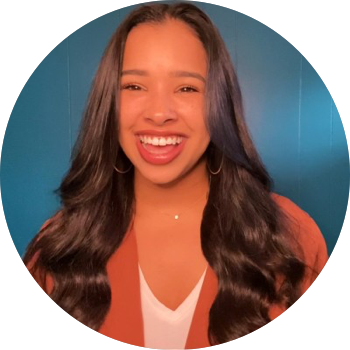 Tamra Cooper
Tamra Cooper
Emerging Talent & Diversity Programs Specialist at Nexthink
"Have you ever had a project or task where you made a mistake or didn’t go as planned? How did you redeem / fix the situation?"
I think this question shows everyone’s human side, and that we all go through ups and downs on the job. It gives the candidate a time to shine and show how they resolved the situation and what they learned from it, and how they held themselves accountable. I think it shows how they cope with adversity, and how they work through challenges individually or as a team.
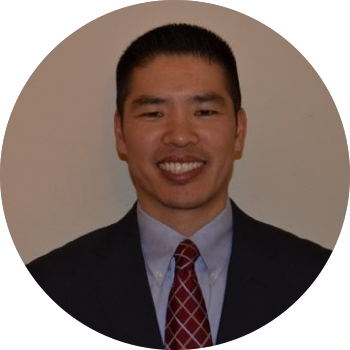 Jeff Chan
Jeff Chan
Director, Talent Acquisition at connectRN
"Would love to hear of a before and after."
This is a very open ended question but also gives me the opportunity to see which direction they go. The reason I like this is because it gives me the opportunity to see how they have influenced someone or a group of people, and what their approach was. Being in Talent Acquisition, our goal is to influence and guide hiring leaders and candidates and do what is best for the company.
 Elizabeth Irvine
Elizabeth Irvine
VP, Marketing at MarketMuse
"Tell me about a recent conflict with a colleague and the steps you took to resolve it."
I like situational questions like this because they give me an idea of how they approach tough situations, work/collaborate with colleagues, and identify lessons learned.

